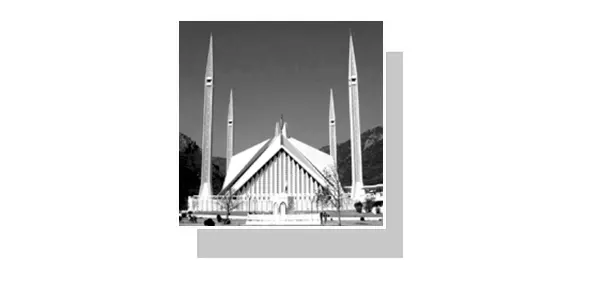Dangerous consequences of using religion in politics
AS a fifty-one-year-old female Pakistani-origin journalist residing in the UK, I have seen the impact of authoritarian rule firsthand in my childhood. Growing up under Zia’s martial law regime, I witnessed human rights abuses and the suppression of dissenting voices in my early teens. This experience shaped my understanding of the dangers of nation-based religious populist ideologies and fake news propaganda, which has become the most challenging issue in contemporary politics. Although my early memories of Pakistan were of a moderate society, I have also witnessed the populist instrumentalisation of Islam and its disastrous consequences in the coming decades. As a journalist, I have been the victim of cyberbullying and threats while exposing populist manipulations. It is a reality that populist leaders worldwide, such as Indian Prime Minister Modi, Donald Trump and notably Imran Khan — the most popular populist leader of my native country, Pakistan – employ these tactics to promote their narratives and manipulate the masses.
Therefore, should the rise of populist leaders and their tactics cause concern for every concerned Democrat? As we have seen, they use nationalist and religious sentiments to sway public opinion, often relying on fake news and propaganda. The consequences of this can be devastating, as seen in the rise of hate crimes, human rights violations and the erosion of democratic values. So, what is the remedy?We know that Populism is an ideology that has gained prominence in contemporary political discourse, where it segregates society into two clashing groups: “the pure people” and “the corrupt elite” (Mudde, 2004). Populist leaders like Modi, Trump and Imran Khan often employ fake news and propaganda to advance their agenda to any extent. Propaganda, especially online propaganda and fake news, are designed to manipulate people’s thoughts and beliefs and persuade them to act in a certain way. While propaganda is the deliberate dissemination of information, ideas, or opinions, often intending to manipulate public opinion or behaviour (Jowett & O’Donnell, 2014). Propaganda can take many forms, including mass media, advertising, political campaigns and education and is used by individuals, organisations and governments to achieve a desired outcome (Jowett & O’Donnell, 2014).
According to Chomsky and Herman (1988), propaganda is often used as a means of manufacturing consent, where the ruling elite seeks to manipulate public opinion to support their interests. That can be seen in how political leaders use media to shape public opinion on issues such as war, immigration and economic policy. Propaganda can also marginalise and demonise certain groups, as seen in Nazi Germany’s propaganda targeting Jews and other minority groups (Welch, 2011). In modern times, social media platforms have been used to spread propaganda and misinformation, leading to concerns about the impact on democratic processes and the spread of hate speech (Kalsnes, Larsson, &Enli, 2018). Since the rise of social media, propaganda has been adopted as a powerful tool that can be used for both positive and negative purposes. Therefore, it is essential to remain vigilant against its use and promote critical thinking and media literacy to ensure that the public can make informed decisions based on accurate information. Populist politicians in post-colonial countries have long understood the power of propaganda and used it effectively by easily manipulating people’s emotions on nationalism and instrumentalising the religion. As a result, we have witnessed nation-based politics in India and Pakistan, where the fundamental issues of poverty, education and human rights, especially women’s rights, have always been ignored. However, it is not India or Pakistan; nation-based politics also harmed counties like the U.K. in the Brexit elections and America in Trump’s saga.
Trump and Khan are prime examples of politicians who have used propaganda to promote their populist agendas in their respective countries. Both politicians have relied heavily on social media to spread their message, using Twitter and Facebook to communicate directly with their followers. However, they have also employed fake news, which is deliberately misleading or false, to influence the population’s perception of events. Indian Prime Minister NarendraModi is another prominent example of a populist leader who has utilised fake news and propaganda to advance his political agenda. Modi and his BharatiyaJanata Party (BJP) have relied on social media platforms to spread their messages and sway public opinion. They have been accused of spreading false and misleading information, particularly during the 2019 Indian general election. Modi’s campaign was heavily based on nationalistic and Hindu supremacist rhetoric, targeting religious minorities and other marginalised groups. His use of fake news and propaganda has led to the demonisationof specific communities and the promotion of a divisive and polarising political atmosphere in India, demonstrating the harmful effects of populist politics and the need to counter fake news propaganda in the political sphere.
In Pakistan, Khan and his supporters have been spreading fake news about their political opponents with such intensity and organised propaganda that it often appears true. For instance, after Khan was democratically ousted in a no-confidence motion in April 2022, he incredulously used the “Amreeki Saazish” (American conspiracy) phenomenon to accuse the opposition of being an imported government. Through the tremendous propaganda of declaring the government as imported from America, Khan has recently convinced members of the US Congress through his lobbying firms to issue condemnation statements against the same government on human rights violations. He also accused his opponents of corruption and other wrongdoings without evidence supporting their claims.
—The writer is Professor of History, based in Islamabad.
Email: [email protected]









